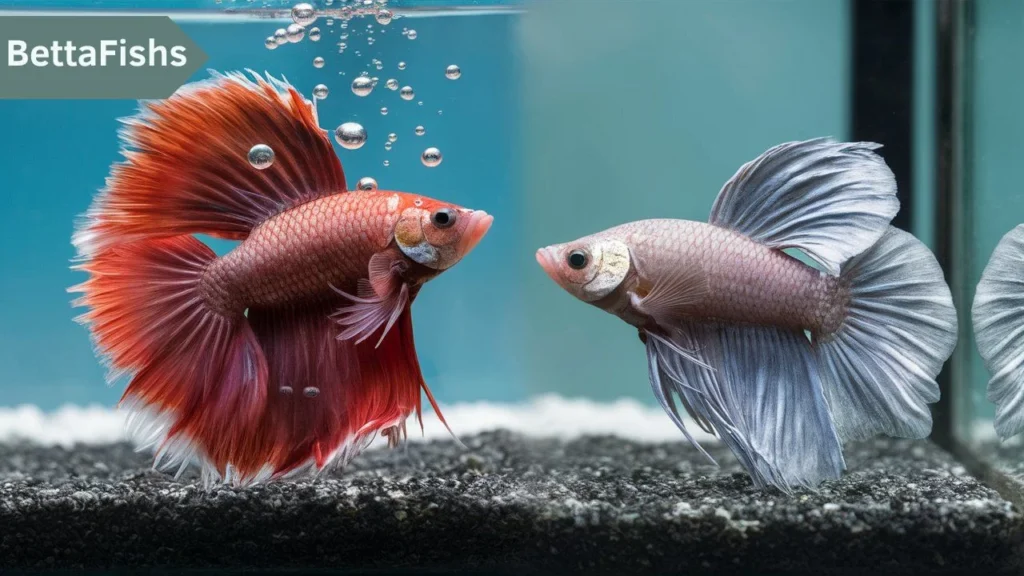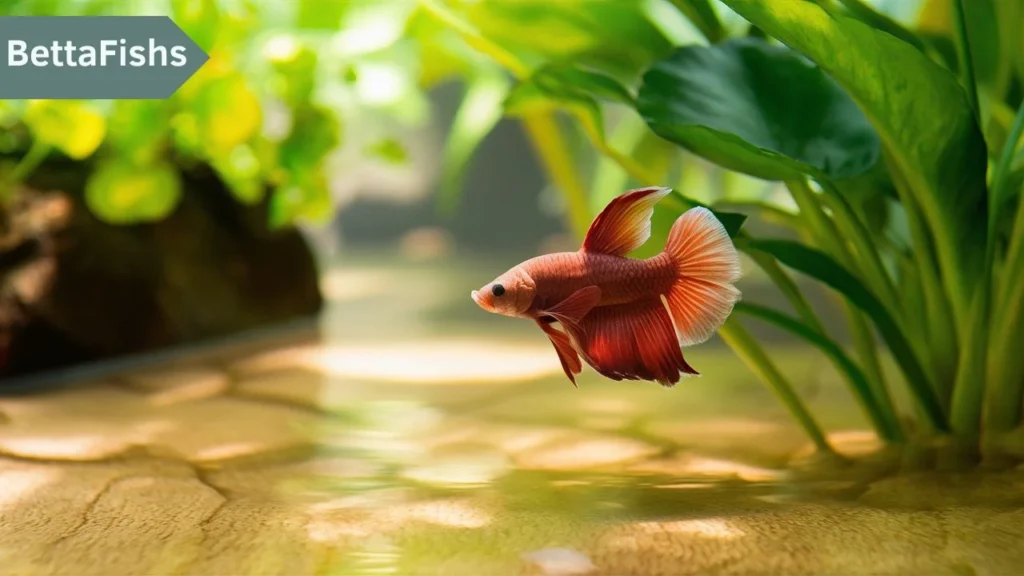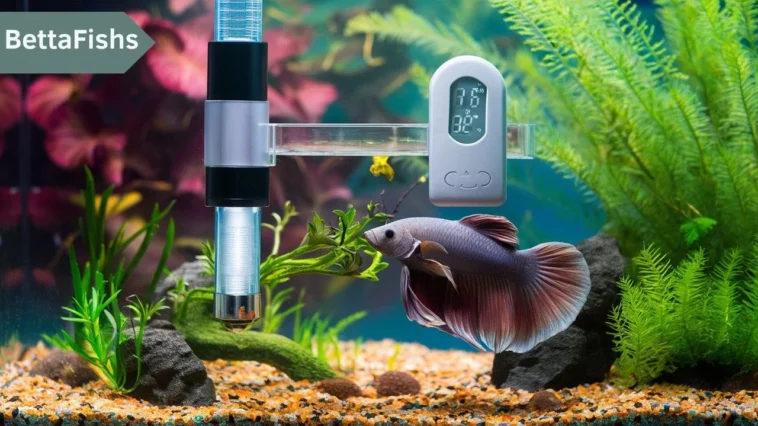One of the most common freshwater fish kept as pets is betta fish, commonly referred to as Siamese fighting fish. Their striking appearance, coupled with their relatively low maintenance requirements, makes them a favorite among both beginner and experienced aquarists. In this article, we cover ” Water temp for Betta fish? ” in detail.
Importance of Proper Care
While betta fish are hardy creatures, they require specific care to thrive. One of the most critical aspects of betta fish care is maintaining the right water temperature. Unlike some other fish species, bettas are sensitive to temperature fluctuations, which can significantly impact their health and well-being.
Why Water Temperature Matters for Betta Fish
The Natural Habitat of Betta Fish
Betta fish originate from the warm, shallow waters of Southeast Asia, particularly in Thailand, Cambodia, and Vietnam. In the wild, they inhabit rice paddies, slow-moving streams, and ponds, where the water temperature is consistently warm.
The Role of Temperature in Fish Health
Water temperature plays a vital role in a betta fish’s metabolism, immune system, and overall health. Betta fish are ectothermic, meaning their body temperature is regulated by the water around them. If the water is too cold or too hot, it can lead to stress, illness, and even death.
The Ideal Temperature Range
What Is the Ideal Temperature for Betta Fish?
Betta fish prefer water that is between 76°F and 82°F (24°C and 28°C). This range mimics their natural habitat and provides the best environment for their metabolic and immune functions.
How Temperature Affects Betta Fish Behavior
When the water is within the ideal temperature range, betta fish are active, and vibrant, and display healthy behaviors such as exploring their environment and interacting with tank mates. However, if the water temperature falls outside this range, you may notice changes in their behavior, such as lethargy, loss of appetite, and increased aggression.
The Impact of Temperature on Betta Fish Lifespan
Maintaining the correct water temperature not only keeps your betta fish healthy but also can extend their lifespan. Betta fish kept in consistently warm water are less likely to develop stress-related diseases, which can shorten their lifespan.
Common Problems with Incorrect Water Temperature
Signs of Overheating in Betta Fish
If the water temperature exceeds 82°F (28°C), your betta fish may become overheated. Signs of overheating include rapid gill movement, frantically swimming, and staying near the water surface where the oxygen concentration is higher.
Symptoms of Cold Stress in Betta Fish
On the other hand, if the water temperature drops below 76°F (24°C), your betta fish may experience cold stress. Symptoms of cold stress include lethargy, reduced appetite, clamped fins, and an increased susceptibility to infections.

How to Monitor and Maintain Water Temperature
Choosing the Right Aquarium Heater
To maintain a stable water temperature, investing in a reliable aquarium heater is essential. Look for heaters with adjustable settings and a built-in thermostat to ensure the temperature remains within the ideal range.
Using a Thermometer for Accurate Temperature Readings
Pair your heater with a good-quality aquarium thermometer. Regularly check the temperature to ensure that it remains stable. Digital thermometers with probes tend to be more accurate than stick-on types.
Regular Maintenance and Monitoring Tips
Regularly clean your heater and thermometer to ensure they function correctly. Additionally, check the water temperature daily, especially during seasonal changes, to prevent any sudden fluctuations.
What to Do if the Water Temperature Is Too High or Too Low
Steps to Take if the Water Is Too Warm
If the water temperature is too high, turn off the heater and increase water surface agitation using an air stone or filter to cool the water. You can also partially replace the warm water with cooler, conditioned water.
How to Safely Raise the Water Temperature
If the water temperature is too low, avoid sudden increases, which can shock your fish. Instead, gradually raise the temperature by adjusting the heater in small increments and ensuring the room temperature is warm.
Seasonal Considerations for Betta Fish Care
Managing Water Temperature During Winter
During winter, room temperatures often drop, which can affect your aquarium’s water temperature. Ensure your heater is functioning correctly and consider adding insulation around the tank if needed.
Keeping Betta Fish Cool in the Summer
In the summer, ambient temperatures can rise, leading to overheating. Use a fan to blow air across the water surface, and keep the tank out of direct sunlight to help maintain a stable temperature.
The Role of Tank Size and Placement
How Tank Size Affects Temperature Stability
Larger tanks tend to maintain a more stable temperature compared to smaller ones. If possible, opt for a tank that is at least 5 gallons, as it will be less susceptible to sudden temperature changes.
The Importance of Tank Placement
Where you place your tank can also affect water temperature. Avoid placing your tank near windows, heaters, or air conditioners, as these can cause temperature fluctuations.

The Impact of Water Temperature on Betta Fish Breeding
Optimal Temperature for Betta Fish Breeding
For those interested in breeding betta fish, maintaining the right water temperature is crucial. The optimal temperature for breeding bettas is slightly higher than their normal range, around 80°F to 82°F (27°C to 28°C). This encourages spawning and ensures the eggs develop properly.
Temperature Fluctuations and Their Effect on Breeding Success
Temperature fluctuations during breeding can negatively impact the success of the spawn. Consistent temperature is key to ensuring the health of both the parents and the fry.
Common Myths About Betta Fish and Water Temperature
Debunking Myths About Betta Fish Temperature Tolerance
A common myth is that betta fish can survive in unheated bowls or small containers. While they may survive, they will not thrive, and their lifespan will be significantly shortened. Bettas require warm, stable water temperatures to live a healthy life.
Real Needs of Betta Fish
Another myth is that betta fish can adapt to any temperature over time. In reality, sudden changes in temperature can cause shock and stress, leading to illness or death. It’s crucial to provide a stable, warm environment for your betta.
Conclusion
Maintaining the ideal water temperature for betta fish is vital for their health, happiness, and longevity. By understanding their natural habitat, monitoring and controlling the water temperature in your tank, and taking action when necessary, you can ensure your betta fish lives a vibrant and fulfilling life.
FAQs
1. Can Betta Fish Survive in Cold Water?
Betta fish can survive in cold water for short periods, but it is not ideal. Cold water can stress them out, leading to illness and a shortened lifespan.
2. What Happens if the Water Is Too Hot for Betta Fish?
If the water is too hot, betta fish may become stressed and show signs of overheating, such as rapid gill movement and lethargy. Prolonged exposure to high temperatures can be fatal.
3. Do Betta Fish Need a Heater All Year Round?
Yes, betta fish typically need a heater all year round to maintain a stable temperature within their ideal range.
4. How Can I Tell if My Betta Fish Is Too Cold?
Signs that your betta fish may be too cold include lethargy, reduced appetite, clamped fins, and sluggish movement.
5. What Is the Best Way to Gradually Change Water Temperature?
The best way to gradually change the water temperature is to adjust the heater in small increments and monitor the temperature closely to avoid shocking your fish.





One Comment
Leave a ReplyOne Ping
Pingback:How to warm Betta fish water?